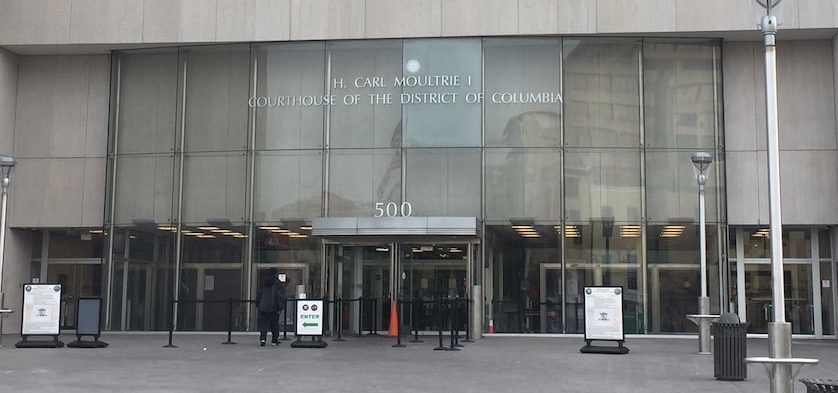
On the right to testify in Graves v. U.S.
The defendant in a criminal case has the right to testify on his own behalf. Although waiving the right to remain silent is not always the smartest thing to do, it may be necessary — absent other evidence — in cases in which the defendant asserts self-defense.
This was the issue in Rickey Graves v. United States, 245 A.3d 963 (D.C. 2021), a case in which the trial judge precluded the defendant from testifying that he acted in self-defense. The opinion has some helpful language with respect to “invited error” and plain error and the preservation of an issue for appeal. Finally, the opinion discusses the situation in which the defense attorney in his opening statement concedes on one of the two charged offenses.
D.C. Superior Court judge Harold Cushenberry presided at trial. D.C. Court of Appeals associate judge Stephen Glickman wrote the opinion. Rickey Graves was defended by Jonathan Willmott at trial and by Jeffrey Light on appeal.
The Right to Testify
A criminal defendant’s right to testify in his own defense is guaranteed by the Fifth, Sixth and Fourteenth Amendments to the U.S. Constitution: “The fundamental fairness of a criminal trial is called into question if the defendant is deprived of the right to freely decide whether to testify on his own behalf.”
A D.C. police officer moonlighting as a security guard observed the defendant in Graves shoplifting a bottle of wine and followed him out of the store. The officer grabbed Graves by the neck and was then bitten during the struggle that followed.
Self-defense in a case involving a police officer in D.C. can only be asserted if the court finds that the officer acted with “excessive force.” Holding that the officer in this case did not use excessive force, based on the officer’s testimony and a review of the officer’s body worn camera (BWC) footage, the judge prohibited Graves from testifying to self-defense. He informed the parties that he had seen and heard enough during the government’s case-in-chief to conclude that the office had not used excessive force and that he could not be persuaded otherwise no matter what Graves might have to say about it. Since this would have been the only reason to take the stand, Graves then decided not to testify. As the D.C. Court of Appeals put it, Graves “waived his right to testify only after the judge told him point blank that he could not testify about the only issue worth testifying about.” (Emphasis in original.)
This was reversible error. The BWC footage was inconclusive, and Graves could have contradicted the officer’s testimony. Graves would have been the sole witness in his defense: his testimony was necessary to put facts into evidence and to contradict the officer in ways his lawyer could not do on cross-examination alone. Finally, the government’s case was not overwhelming. “For these reasons,” the Court concluded, “we are not persuaded that [Graves’] potential testimony had no reasonable possibility of raising a sufficient doubt as to whether [the officer] used excessive force and whether the government disproved appellant’s claim of self-defense.”
“Invited Error”
The government argued on appeal that by “inviting the court to rely on the video in lieu of testimony” in its opening statement, the defense waived his constitutional claim by “inviting the error.” Generally speaking, the “invited error doctrine” precludes a party from asserting error on appeal on a decision that the party itself induced the court to make.
The Court did not agree that defense counsel’s opening statement was to blame in any way for the trial court’s ruling: The lawyer simply expressed confidence that the video would prove Graves’ argument. He never said he would refrain from presenting evidence to supplement the video if the court denied his motion for judgment of acquittal.
Plain Error/Preservation of Issue
In language that is sure to be cited in many future briefs, the Court held that it would not apply the plain error standard in a way that would “elevate form over the practical dynamics of trial litigation.” The Court has previously held, for example, that “a claim is not forfeited where, despite defense counsel’s failure to object, the trial judge demonstrably was aware of the potential error and broached it sua sponte.” After all, the overall purpose of the plain error standard is to alert the trial court to an issue so that it has the opportunity to consider it.
Admission of Guilt in Opening Statement
Defense counsel made the unfortunate remark during his opening statement that “we don’t deny the Theft 2 shoplifting. [Graves] has virtually admitted that from the get-go.” The defense was only challenging the assault.
Defense argued on appeal that the trial judge should have sua sponte recused himself after this hearing this admission of guilt. The Court again disagreed, this time with the defense. Graves never pled guilty. He forced the government to prove the allegations. Held the Court: “Virtually” implies something short of “actually” or “entirely” and that is how the judge understood it – not as an affirmative admission of guilt, but as an acknowledgment that Graves’ case with to the shoplifting was weak.
